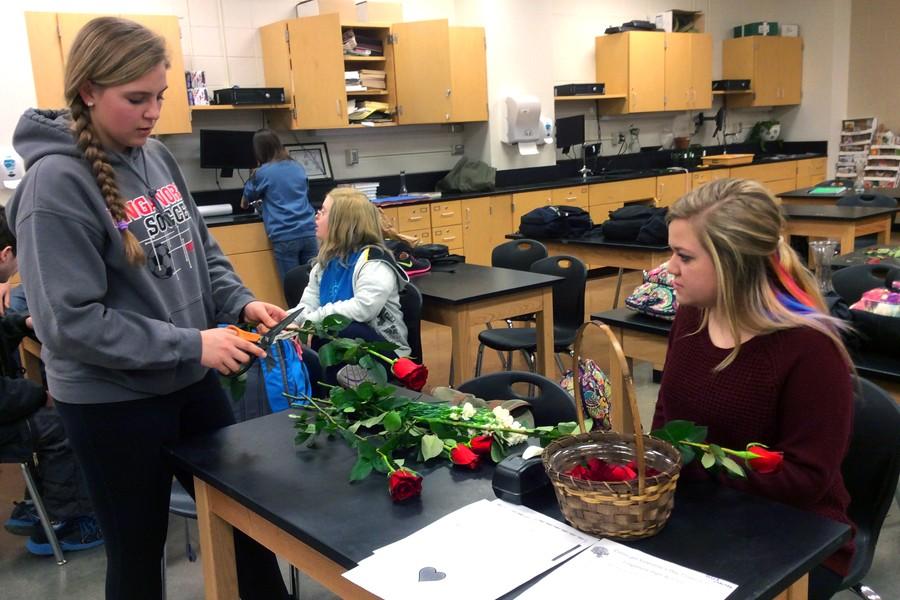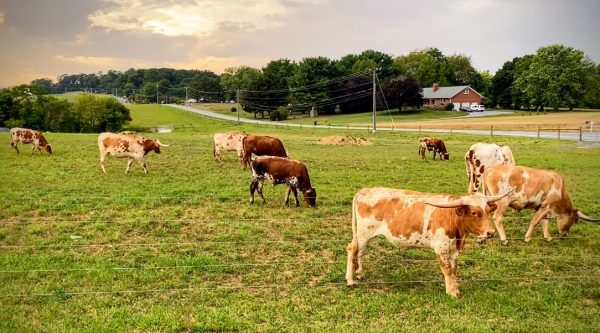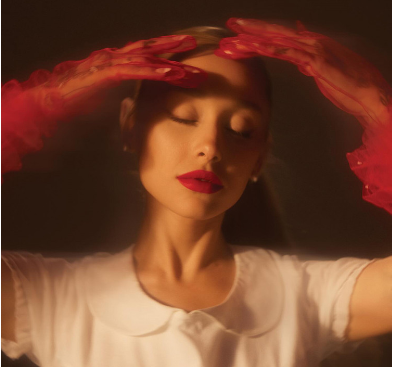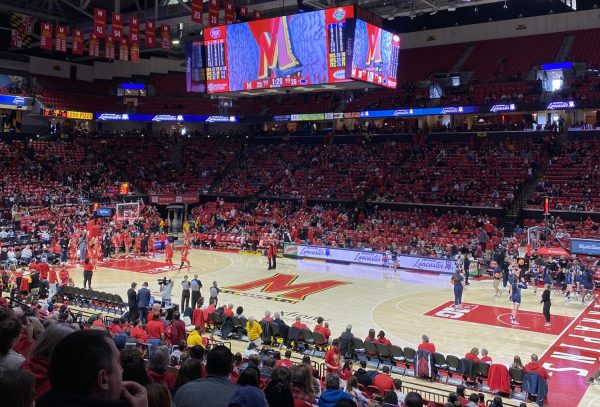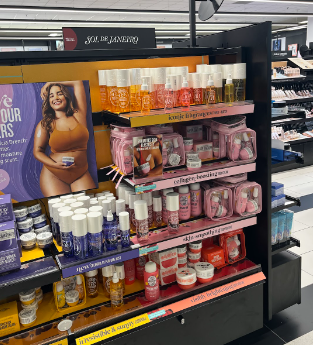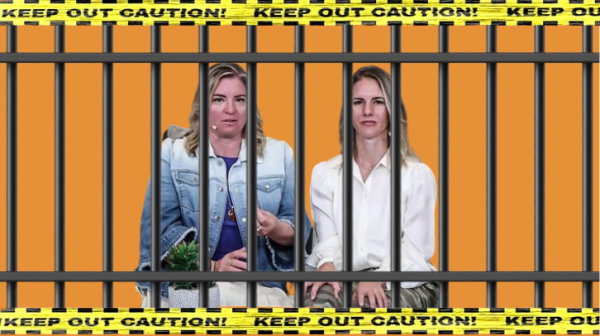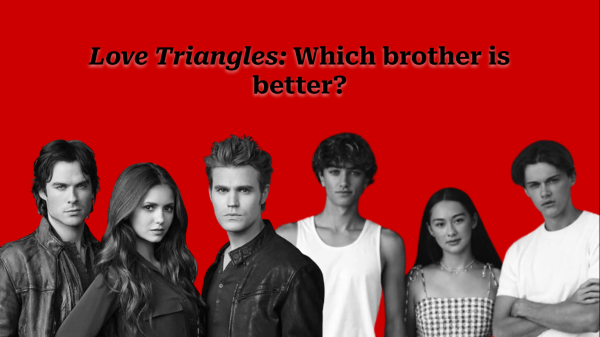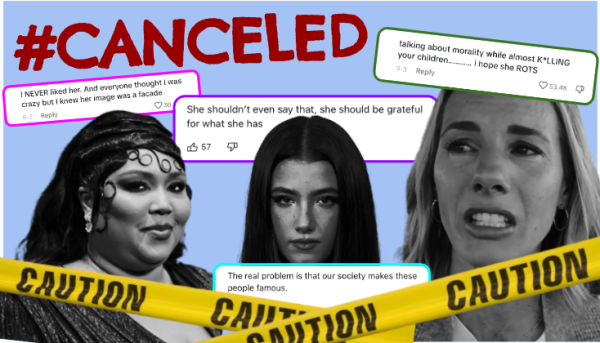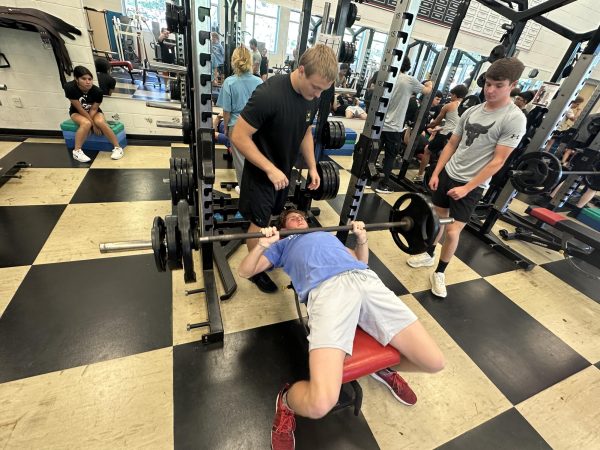As much as (or more than ) AP, electives can shape the future
Juniors Katelyn Duda and Brianna Coposky make a Valentines Day flower arrangement in Mr. Hawthorne’s horticulture class.
February 27, 2015
As a high school student, not only is there pressure to succeed in classes, but to actually choose what classes you want to take. After all, most FCPS students will have taken 32 classes throughout their high school careers.
Many students have schedules that are made up major subject classes such as science, math, social studies, and English, with little room left to take any electives. Because of the pressure put on students to get into college, many also take honors or AP courses to prepare them for life after high school.
However, diversity in students’ schedules can greatly benefit them. Variety in classes allows students to experience and explore new subjects and interests that some required courses do not offer. It can give them a chance to experience new career paths that the basic classes don’t cover. And they can be fun!
Mr. Julian Lazarus, performing arts teacher, says that electives are good for students. “However, I think that the majority of students believe their electives are in some way inferior to their other classes and, therefore, don’t understand the power of them to help them get into college and acquire other life skills.”
Lazarus adds, “Also for some students, their electives feed into their passions and, eventually, their careers.”
Freshman Sophie Kirschner said, “Electives are good because not everyone wants to go into a field of math, science, or history, so they give you a good idea of what you want to do instead.”
Rozmia Fattah, Class of 2018, added, “[Taking elective classes is for] the same reason you do extra curriculars and sports. It’s because you want to do them, instead of classes you’re required to take.”
Social studies teacher Mr. Tony Miller has a different view. He believes that AP and academic classes are needed because they “provide rigor that doesn’t happen in regular honors classes, and they are an introduction to college classes.” However, many electives are AP level. Miller believes that the rigor of AP is important. It’s easy to take the “easy” way out of high school and choose classes that are not challenging. The classic expression is “underwater basket weaving.”
Because electives aren’t part of the”core” and they aren’t tested with standardized tests (except AP), sometimes, they are the first to be cut in a county or state budget. However, at LHS, there are many unusual electives, including jewelry-making, ceramics, digital communication, and WWII history.
Some school systems have added electives, such as Briarcliff Manor High School in Westchester, New York. The school added unique courses, such as cardio fitness, advanced Java programming and Mandarin language.
Of course, electives aren’t just limited to the arts. For some students, like senior Abby Hilton, electives can be an extension of the required classes. She says about her class Engineering Design and Development class, “I love it! It’s challenging and I love being challenged. I get to work with Bailey Tregoning who is the powerhouse of PLTW, and it’s a lot of fun.”
According to Big Future, a website created by The College Board, electives “explore your interests, lighten a demanding class schedule and have fun studying something you love.”
Elective courses do not have to be classified as “easy.” Perhaps most importantly, they can encourage students to pursue their passions and careers later in life.


